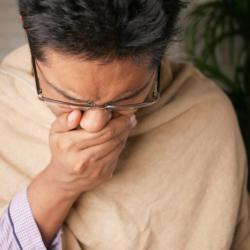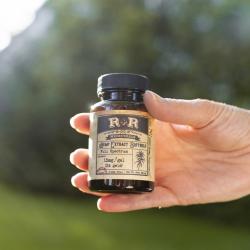Study Finds Relationship Between Anxiety Disorders and Persistent Cannabis Use
Anxiety disorders adversely affect a person's ability to carry out daily tasks, maintain affable relationships with others and perform at work. However, the list of problems triggered by anxiety does not end here. Among other problems, the disorders also significantly increase the risk of substance abuse because of the patient's tendency to self-medicate psychiatric symptoms.
Individuals of all age groups can develop these disorders, but adolescents and young adults display some of the highest rates of anxiety disorders. This is primarily because some of the key changes in professional and personal life are often witnessed during the challenging phase of adolescence. In fact, the use of marijuana has been frequently associated with various subtypes of anxiety disorders, such as generalized anxiety disorders (GAD) and panic disorders.
Now, a recent study, published in the Journal of the American Academy of Child & Adolescent Psychiatry, suggests that anxiety is a major risk factor associated with the patterns of problematic marijuana use in early adulthood. The 20-year cohort study, a collaboration between Duke University and the North Carolina State Division of Developmental Disabilities, Mental Health and Substance Abuse Services, examined 1,229 participants between 1993 and 2015.
The participants were annually assessed for problematic marijuana use from nine to 16 years and then subsequently followed up at the age of 19, 21, 26 and 30 years on the basis of the Diagnostic and Statistical Manual of Mental Disorders 5 (DSM-V). Upon finding that 76.3 percent of the participants did not develop problematic marijuana use patterns during adolescence or in early adulthood compared to the other participants who tested positive for the same, the researchers established three distinct risk profiles that may assist in developing targeted interventions. They were as follows:
- Persistent problematic use: Individuals categorized under this group displayed the most problematic cannabis use that persisted in early adulthood. This group also exhibited the highest levels of psychiatric disorders. Lead author of the study Sherika Hill noted that 27 percent of persistent users struggled with anxiety disorders as children, while 23 percent reported grappling with anxiety disorders as older teens and during college years up to the age of 21.
- Limited problematic use: Compared to other groups, individuals in this group experienced the most adverse effects of an unstable and dysfunctional family. They also displayed a tendency to use a higher level of cannabis during their preteens and adolescence. However, their propensity to use marijuana faded out as they grew older.
- Delayed problematic use: While participants in this group did not showcase any problem with marijuana use during adolescence and early adulthood, problematic marijuana use ensued when they were between 26 and 30 years. This group also reported being bullied and mistreated during their childhood.
In the light of increased focus on the legalization of marijuana for medical purposes, the above study plays a crucial role in highlighting some of the major repercussions of this drug on the mental health of people. Emphasizing upon the above point, Hill said, "We have to start thinking about how we are going to address problematic use that may arise in a growing population of older users. Given that more states may be moving towards legalization of cannabis for medicinal and recreational purposes, this study raises attention about what we anticipate will be the fastest growing demographic of users adults."
Seeking treatment for anxiety disorders
A number of quantitative studies have shown the comorbidity between anxiety and cannabis use, particularly during the most stressful stage of adolescence. Despite the ongoing debate on the legalization of medical marijuana, some of the potential consequences of using marijuana include a range of mental and physical health complications.
If you or your loved one is experiencing the symptoms of anxiety disorders, contact the Anxiety Disorder Helpline to access the finest treatment facilities specializing in delivering evidence-based intervention plans. Call at our 24-hour anxiety helpline number 866-971-7951 to know more about the anxiety disorders treatment facilities near you.
More to Read:
Previous Posts:






